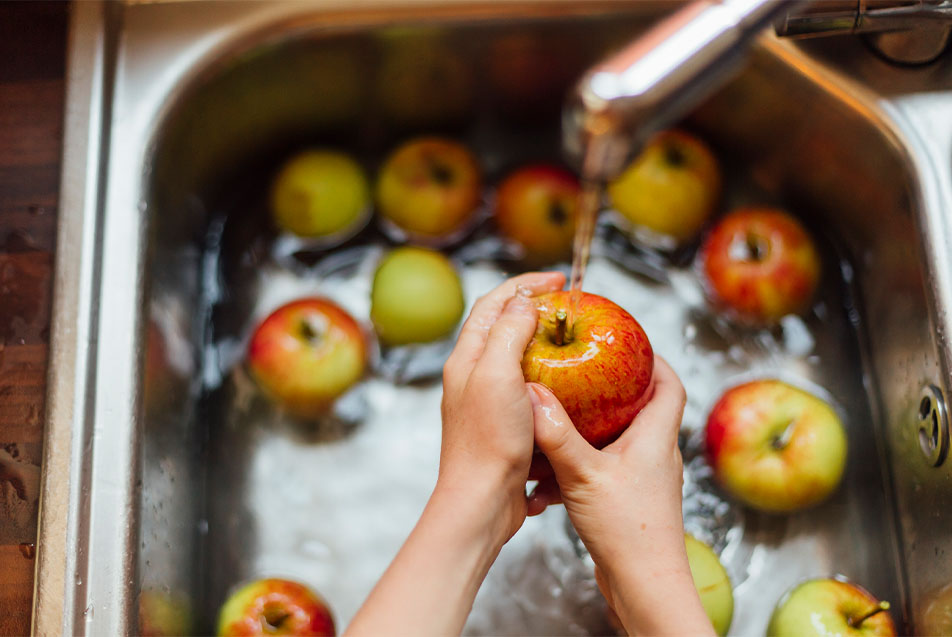
This post was written by Hannah Bercot, RDN, CD, community outreach dietitian, Parkview Community Greenhouse & Learning Kitchen.
Self-quarantines and social distancing have many of us concerned about heading to crowded grocery stores and farmers markets to buy essential resources, such as food. It brings up questions about the proper precautions. Should I be sterilizing containers? Wiping off bags? Washing food?
The lifespan of the virus
COVID-19 survives on surfaces for varying lengths of time, depending on the material. It’s important to realize that a virus needs a host cell to multiply, meaning that viruses are dying rather than increasing or maintaining in numbers when they are on surfaces outside the host. It is also important to remember that there are thousands of other microbes on these surfaces, and most of them are good microbes. While it’s a good idea to properly wash your hands and surfaces with soap and water after a trip to the store, you might not have to be quite as aggressive with your produce.
Minimizing risk
General food safety is important during a pandemic because we want to avoid hospital visits at all costs. It’s important to properly wash, prepare, cook and store all foods to avoid foodborne illness. That being said, according to the Centers for Disease Control and Prevention (CDC), there is no evidence to suggest that COVID-19 transmission is associated with food, however, there is a chance that someone at the grocery store could have sneezed or coughed directly onto an apple minutes before another individual takes that apple. It is more important to avoid the person sneezing and coughing, as COVID-19 is transmitted easiest through respiratory droplets. As for the apple, washing the fruit under running water and scrubbing it well is sufficient for removing most of the microbes on its surface.
The good bacteria
Generally, washing produce using running water and some scrubbing is sufficient for reducing the risk of harmful, infectious microbes. There will still be some beneficial bacteria left on the surface of the produce after washing. These beneficial bacteria are very important for the ecosystem we call our microbiome that lives in and on our bodies. These microbes tend to concentrate in our guts. Research shows that an abundance and variety of microbes in the gut leads to protection from harmful, infectious microbes. Pathways are being identified between bacteria in the lower GI and immune responses to systemic infections.
The beneficial microbes can help to build your first line of defense against infections that can occur anywhere in the body. This is why there is no current recommendation to wash foods with anything more than running water, rubbing and scrubbing. There is no need to use produce wash, either purchase or homemade. Simply rinse your produce just before you consume it and let those microbes help build abundance and variety in the microbiome that could strengthen our immune response against viral infections like COVID-19. For an even stronger microbiome, feed it a diet high in fiber, with lots of whole plant foods and variety.